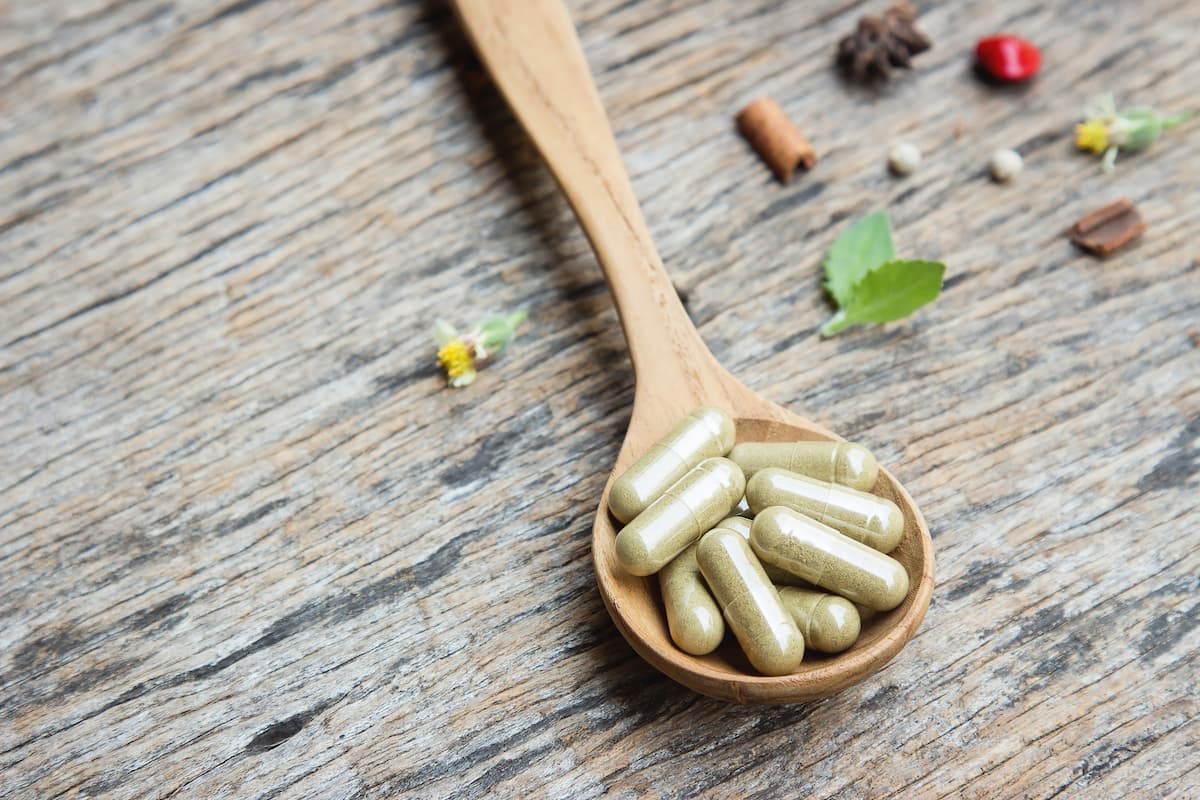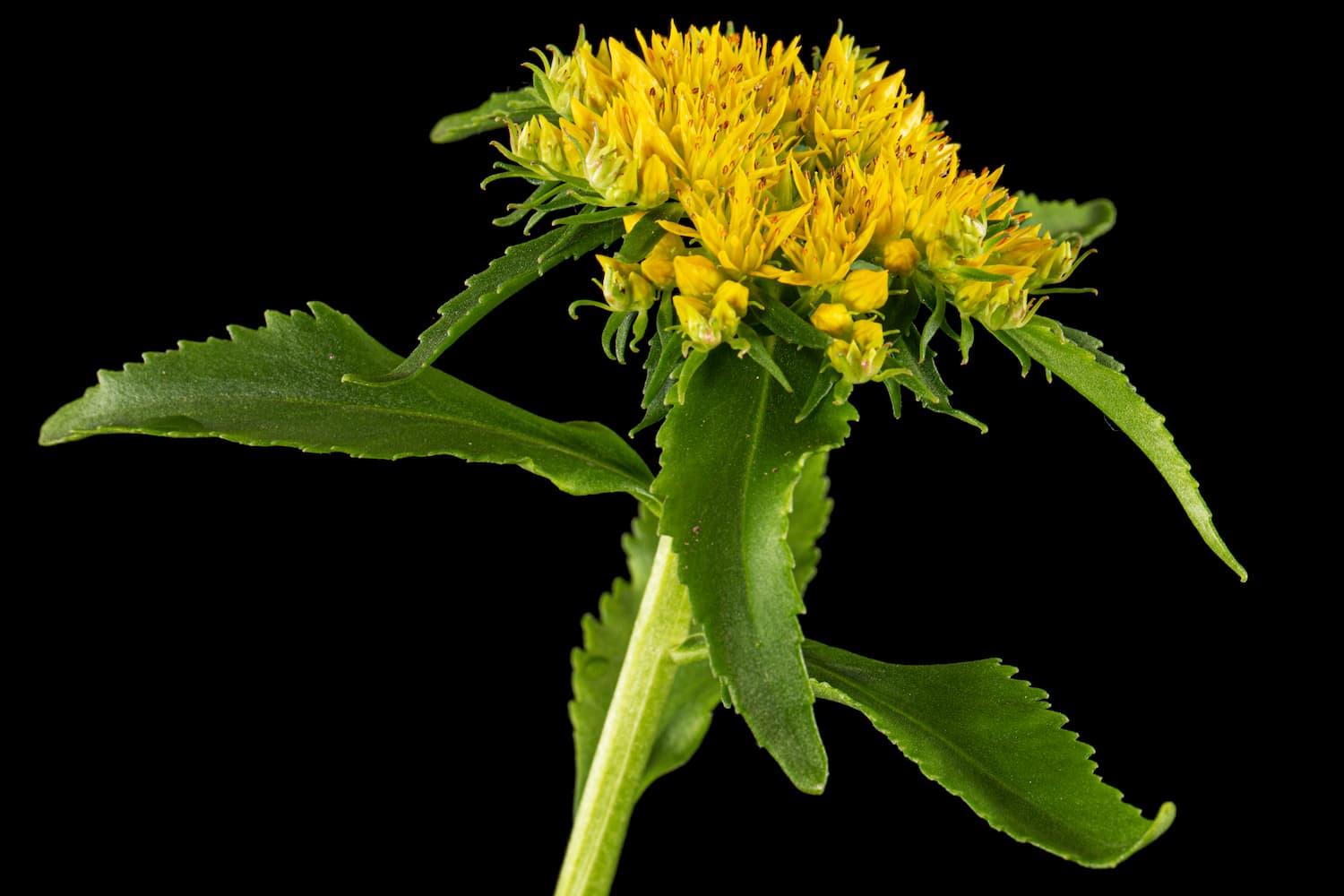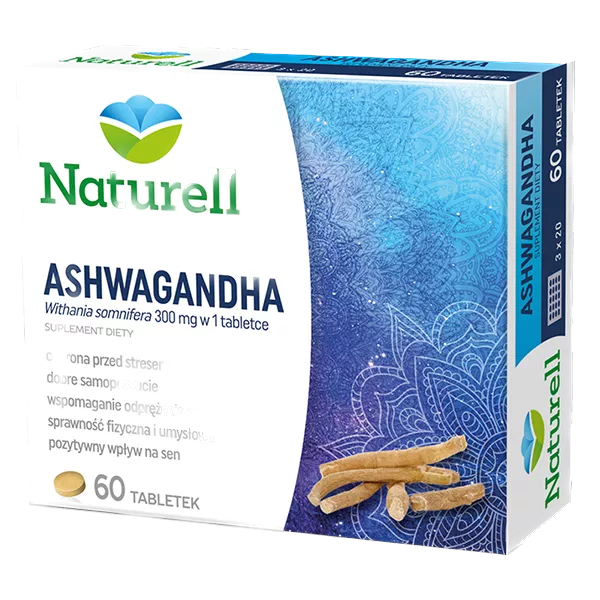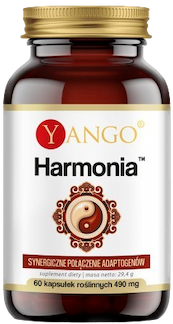Ashwagandha and thyroid or Hashimoto (effects and risks)
Ashwagandha affects thyroid hormone levels. Find out if you can use it.


Learn more about our editorial process
.

Learn more about our editorial process
.

Learn more about our editorial process
.

Learn more about our editorial process
.
Why you can trust us
Articles on Natu.Care are written based on scientific research, data from government websites and other reliable sources. The texts are written in cooperation with doctors, nutritionists and other health and beauty experts. Articles are reviewed before publication and during significant updates.
.Learn more about our editorial process
.Information about advertisements
Content on Natu.Care may contain links to products from the sale of which we may receive a commission. When creating content, we adhere to high editorial standards and take care to be objective about the products discussed. The presence of affiliate links is not dictated by our partners, and we select the products we review ourselves completely independently.
.Learn more about our terms and Conditions
.Ashwagandha can help you regulate your thyroid or... make a hormonal boiler in it. This is no ordinary plant - but a powerful adaptogen. It should be used with caution.
With doctor Kacper Nihalani, we explain how ashwagandha affects thyroid function and why you need to be careful if you are Hashimotics or suffer from other diseases of this organ.
From this article you will learn:
.- How ashwagandha affects the production of thyroid hormones .
- Can you use ashwagandha if you have a diseased thyroid .
- How to use ashwagandha to feel the benefits .
See also:
- Ashwagandha
- Ashwagandha - contraindications
- Ashwagandha - side effects
- Ashwagandha - what not to combine with? .
- Ashwagandha - morning or night?
- Ashwagandha - when does it start working?
- Ashwagandha for sleep, sex, stress - dosage
- Ashwagandha KSM-66 - what is it?
Ashwagandha - what is this plant?
.
Ashwagandha (also known as Indian ginseng or sparkling plant) is adaptogen, a plant that affects the human body and increases its adaptive capacity to adverse stress factors - physical and mentaland.
This means that the use of ashwagandha, for example, can strengthen your resistance to stress and reduce its negative effects on the body, as well as reduce fatigue and promote recovery.
Ashwagandha has been used for thousands of years in ayurveda (the oldest healing system in the world) for, among other things, adding vitality, increasing libido, reducing mental tension and improving sleepand. Due to the vitanolides it contains, it can induce physiological, biochemical or morphological changes in the human body .
For this reason, people with thyroid disease wonder whether it is safe for them to use ashwagandha as a natural method of hormone support. The answer is: it depends.
How does ashwagandha affect the thyroid gland?
.
Ashwagandha has a stimulating effect on the thyroid gland, causing increased production of the hormones thyroxine (FT-4) and triiodothyronine (FT-3), which directly affects TSH (thyrotropin)and.
Adequate levels of these hormones are crucial for thyroid function - and a healthy thyroid means normal metabolism, cardiovascular function, body temperature regulation or fertility .
.
Diseases of this organ are linked to, among other things, an imbalance in the production of thyroid hormones. As you have already guessed, the use of ashwagandha can therefore either help you (when you have too little of them) or harm you (when you have too much of them). However, this is not so obvious in every case.
Ashwagandha and thyroid disease
.
In scientific studies, ashwagandha has been shown to have immunomodulatory (stimulating the immune system) and stimulating the production of certain hormones - including the thyroid. The combination of these properties means that the plant can interfere with the function of this organ - to your advantage or the opposite.
Important
If you have been diagnosed with one of the thyroid diseases, before using ashwagandha absolutely consult your doctor. He or she is the one who knows your medical history, current test results and may have had a chance to see your thyroid on ultrasound.
In the table below, you will find information on how ashwagandha affects specific thyroid diseases along with comments from the doctor, Kacper Nihalani.
This is an indication of goitre and its treatment.
|
Thyroid disease . |
How can ashwagandha affect the course of the disease . |
Doctor's comment . |
||||
|
Ashwagandha may increase the production of the thyroid hormones FT-3 and FT-4, which can lead to over-stimulation of this organ in hyperthyroid people. This, in turn, can result in an exacerbation of hyperthyroidism symptoms such as rapid heartbeat, hot flashes, tremors and irritability. |
Ashwagandha can increase the production of FT-3 and FT-4 in people with hyperthyroidism. |
Overproduction of thyroid hormones in hyperthyroid people can exacerbate the symptoms of the disease, nullify drug treatment and lead to a severe form of hyperthyroidism called thyrotoxicosis. |
. The use of ashwagandha is not recommended in people with hyperthyroidism. |
The use of ashwagandha is not recommended in people with hyperthyroidism. | ||
|
Ashwagandha can raise thyroid hormones FT-3 and FT-4 and thus lower TSH levels, so it may be useful for hypothyroid people who have too few of these hormones. |
Hypothyroidism should first be balanced pharmacologically, and then if you want to use ashwagandha, which can potentially help thyroid health, arrange this with your GP. |
. | ||||
|
In this autoimmune disease, antibodies begin to attack the thyroid tissue and autoreactive T lymphocytes form infiltrates on it, resulting in gland dysfunction.
Hashimoto's disease is a disease of the thyroid gland. Ashwagandha may further stimulate the body's immune response (which does not know it is destroying its own cells) and exacerbate this condition. |
Ashwagandha influences the immune system and enhances the body's defence response - unfortunately, even the one against its own cells. Its use in Hashimoto's disease may have an adverse effect on the patient. |
|||||
|
Graves-Basedov's disease |
This is an autoimmune thyroid disease in which the body produces antibodies against the TSH receptor, leading to symptoms of hyperthyroidism. The use of ashwagandha can further exacerbate the symptoms of this disease. |
Because of its properties that stimulate thyroid hormone production, its use in Graves' disease is not recommended. |
. | |||
|
Ofebrile and subacute thyroiditis |
Thyroiditis. |
These are inflammatory conditions that usually develop in the course of an infection (viral, bacterial, fungal). |
|
These conditions are not always the same. Ashwagandha has no antiviral or antibacterial activity in humans, but may interact with some drugs used to treat infections of various origins.
Ashwagandha has no antiviral or antibacterial activity in humans, but may interact with some drugs used to treat infections of various origins. |
Ashwagandha can work well prophylactically, in improving immunity, but if you become ill, rely on traditional treatment, especially if you have been diagnosed with thyroiditis. Various medications (steroids, antibiotics) are used in the course of inflammation, and ashwagandha can intensify or nullify their effects.
Ashwagandha can also help to improve the immune system. |
|
|
Non-toxic or toxic nodular goiter |
Thyroid goiter is an enlargement of this gland. It is not a disease in itself, but a symptom of a condition. The cause may be over-stimulation by the hormone TSH. Ashwagandha can further stimulate this hormone, which can negatively affect goitre and its treatment. |
Goitre is indicative of a thyroid disorder and must be carefully examined by a doctor. For effective treatment and course of this condition, do not go for ashwagandha, which can negatively interfere with the disease process itself, as well as the treatment. |
||||
|
Thyroid cancer |
There are no scientific studies with humans that explain the effect of ashwagandha on cancer. |
The molecular mechanisms underlying the effects of ashwagandha on the course of cancer are not fully understood. |
The molecular mechanisms underlying the effects of ashwagandha on the course of cancer are not fully understood. His use in cancer is not recommended - we simply do not know how it will affect the body and the concomitant chemotherapy used. It is not recommended for use in cancer. |
Can I use ashwagandha for thyroid disease?
.
The use of ashwagandha should be consulted with a doctor based on your individual medical history and current health status. The decision should be made by a specialist who has a broader picture of your illness.
Interpreting TSH, FT-3 and FT-4 results on your own and making supplementation decisions without consulting your doctor may result in uninformed sabotage.
The results of TSH tests etc. are not in themselves an adequate way of measuring thyroid health - the patient's symptoms and presentation at the consultation are also important. This causes the patient to misinterpret test results without the advice of a doctor..
 .
.
Kacper Nihalani doctor
.
Luckily, more and more doctors are becoming interested in natural methods of supporting the body, so they are expanding their knowledge, trying to harness the potential of plants without abandoning conventional methods. Discuss any concerns with your doctor and find out how to sensibly supplement your treatment with plants.
Learn from the mistakes... of others
A case report of a 73-year-old woman with supraventricular tachycardia, symptoms of hyperthyroidism and significantly low TSH levels was published in 2022. The patient admitted that she had hypothyroidism and had been taking an ashwagandha supplement for two years instead of pharmacotherapy. After discontinuing the supplement, there was full resolution of symptoms and improvement in biochemical parametersand.
Ashwagandha Naturell
Product description
Extract from ashwagandha leaves and root will boost energy, overcome fatigue, improve memory and concentration. The product is recommended during periods of increased physical tension or intense physical activity.
Pros and cons
Extract from ashwagandha leaves and root will boost energy, overcome fatigue, improve memory and concentration. The product is recommended during periods of increased physical tension or intense physical activity.
Additional information
Extract from ashwagandha leaves and root will boost energy, overcome fatigue, improve memory and concentration. The product is recommended during periods of increased physical tension or intense physical activity.
Dr. Jacob's Strong Nerves
Product description
Dr. Jacob's Strong Nerves is a dietary supplement thatóry supports the nervous system and helps the body to cope with stress. Thanks to the synergistic combination of beneficial ingredientsós, Strong Nerves relieves anxiety symptoms, increases mental and physical stamina, and supports concentration.
The benefits of this supplement are particularly important for peopleóly exposed to chronic stress, those with sleep problems or employeesóly. It is worth mentioning that the supplement can also help to improve mental well-being and support the immune system.
.All this makes Dr. Jacob's Strong Nerves an excellent remedy for anyone looking for comprehensive support for their nervous system and overall mental performance.
Pros and cons
Dr. Jacob's Strong Nerves is a dietary supplement thatóry supports the nervous system and helps the body to cope with stress. Thanks to the synergistic combination of beneficial ingredientsós, Strong Nerves relieves anxiety symptoms, increases mental and physical stamina, and supports concentration.
The benefits of this supplement are particularly important for peopleóly exposed to chronic stress, those with sleep problems or employeesóly. It is worth mentioning that the supplement can also help to improve mental well-being and support the immune system.
.All this makes Dr. Jacob's Strong Nerves an excellent remedy for anyone looking for comprehensive support for their nervous system and overall mental performance.
Additional information
Dr. Jacob's Strong Nerves is a dietary supplement thatóry supports the nervous system and helps the body to cope with stress. Thanks to the synergistic combination of beneficial ingredientsós, Strong Nerves relieves anxiety symptoms, increases mental and physical stamina, and supports concentration.
The benefits of this supplement are particularly important for peopleóly exposed to chronic stress, those with sleep problems or employeesóly. It is worth mentioning that the supplement can also help to improve mental well-being and support the immune system.
.All this makes Dr. Jacob's Strong Nerves an excellent remedy for anyone looking for comprehensive support for their nervous system and overall mental performance.
Solve Labs Brain Tech Memory & Focus, adaptogens, capsules

- Composition: bacopa monieri, gotu kola, rhoiola rosea, ginseng, zinc gluconate, choline, vitamin B6
- Form: capsules .
- Packaging: 30 or 60 capsules .
- Dose: 2 capsules daily .
- Sufficient for: 10 or 20 days .
Product description
Adaptogens, vitamins and minerals to support the mózg and nervous system. Brain Tech has been developed for people needing long-lasting concentration, improved learning ability, memory and increased resistance to stress.
Pros and cons
Adaptogens, vitamins and minerals to support the mózg and nervous system. Brain Tech has been developed for people needing long-lasting concentration, improved learning ability, memory and increased resistance to stress.
Additional information
Adaptogens, vitamins and minerals to support the mózg and nervous system. Brain Tech has been developed for people needing long-lasting concentration, improved learning ability, memory and increased resistance to stress.
Adaptogens, vitamins and minerals to support the mózg and nervous system. Brain Tech has been developed for people needing long-lasting concentration, improved learning ability, memory and increased resistance to stress.
YANGO, Harmony, adaptogens, capsules
Product description
This dietary supplement contains a synergistic combination of 5 plant extracts that positively influence the body's homeostasis and well-being. The product is recommended for people living under stress, tension and those who are physically active.
Pros and cons
This dietary supplement contains a synergistic combination of 5 plant extracts that positively influence the body's homeostasis and well-being. The product is recommended for people living under stress, tension and those who are physically active.
Additional information
This dietary supplement contains a synergistic combination of 5 plant extracts that positively influence the body's homeostasis and well-being. The product is recommended for people living under stress, tension and those who are physically active.
Product tiles contain affiliate links. As An Amazon Partner, I earn from qualifying purchases.
Ashwagandha and the thyroid gland in scientific research
.
How do we know that ashwa affects how the thyroid gland functions? The plant has been under the magnifying glass of researchers looking at how it affects the organ's hormone production. There is not a lot of research, but it shows the potential of ashwagandha and its effects on thyroid function in humans and animals.
Research involving humans
.
Some issues came up...by accident. In 2014 a study was conducted with people with bipolar affective disorder (ChAD). It tested how ashwagandha affected cognitive function in patients with the condition. They took 600 mg of ashwagandha extract daily or a placebo for eight weeks.
"Side effect" was an increase in thyroid hormones (T3 and T4) during control blood tests. This parameter was not the focus of the experiment, but drew the researchers' attention to the effect of ashwagandha on the thyroidand.
The 8-week study of 2017 involved 50 people diagnosed with hypothyroidism. They were divided into two groups, in which they took 600 mg of the extract KSM-66 of ashwagandha or a placebo daily.
The results showed that subjects in the ashwagandha group significantly increased triiodothyronine (T3) levels by 41.5% and thyroxine (T4) levels by 19.6%. In addition, thyrotropic hormone (TSH) levels decreased by 17.5%, with a final beneficial effect on thyroid function in the subjectsand.
Interestingly, TSH levels decreased significantly after 4 weeks of the study (-12.5%) and (-17.4%) after 8 weeks. To date, this is the only study on a fairly large number of subjects that suggests a direct effect ashwa on thyroid hormone production.
Effects of hasty self-treatment
In 2005, a case report was published of a 32-year-old woman who used an ashwaghanda extract supplement for her chronic fatigue symptoms. Prior to starting the supplementation, she did not suffer from any thyroid disease. The result of this self-treatment was thyrotoxicosis - a condition of hyperthyroidismand.
.
Research in rodents
.
In 2018 rats deliberately induced hypothyroidism over 6 weeks. The selected rats were then given either ashwagandha extract (500 mg/kg body weight) for one month or a thyroid medication (20 µg/kg body weight). The other rodents received nothing.
The results showed that the animals treated with ashwagandha extract or the thyroid treatment drug showed an improvement in the thyroid gland tissue compared to the group that received no drug. In addition, ashwagandha improved thyroid function by increasing thyroid hormone levels and preventing oxidative stress. The histological picture of the thyroid gland was also improvedand.
In another study from 1998 mice were administered ashwagandha root extract (1.4 g per kilogram of body weight) for 20 days. They observed increased concentrations of T3 and T4 hormones and improved antioxidant processes in the bodyand.
What does this research suggest to us?
.
We know that ashwagandha is not just a plant, and its natural origin does not mean it works less well than drugs or will be safe for us - because it comes from nature. It is a powerful adaptogen, used for many ailments for thousands of years in Ayurvedaand.
Research shows that it has an impact on how the thyroid gland functions, and its use in thyroid disease may be helpful for some. In contrast, case reports of ill-advised supplementation show how it can cause harm.
See also:
- Ashwagandha - contraindications
- Ashwagahdna - side effects
- Ashwagandha for sleep, sex, stress - dosage
- What not to combine ashwagandha with? Interactions
For safety, always consult your doctor before you start using ashwagandha.
And when your doctor allows you to...
.
Use ashwagandha with your head
.
To feel the benefits of ashwagandha and to squeeze out its full potential - use it wisely. Consciously choose high quality formulations and and give yourself time to feel the effects.
What to look out for when using ashwagandha?
.
There are no data on the effects of chronic intake of ashwagandha.
|
Factor . |
Why is it important . |
|
| . |
Form |
The most valuable vitanolides are found in ashwagandha root. Choose a product containing a standardised root extract, where the manufacturer provides the % bioactive content and the DER (Drug Extract Ratio). This way you know what you are consuming and in what quantity. Avoid powdered ashwagandha leaves or non-standardised products. |
|
Manufacturer's reliability . |
Choose products that contain a patented formula (e.g. KSM-66). You are assured that the sourcing and manufacturing process are standardised, and the manufacturer often has its own clinical trials and certifications to prove the high quality of the product. |
|
|
Daily serving . |
Recommended daily dose depends on its form and typically uses 300 to 800 mg of 5-10% standardised extract; 3-6 g of powdered root or 1-2 tablespoons of root tea. Follow the manufacturer's recommendations on the packaging. |
|
|
Systematicity . |
Ashwagandha does not have an ad hoc effect (it does not put you to sleep overnight, but neither does it stimulate you in the morning). This plant needs time to take effect, which is why it is so important to take it regularly. |
Systematicity. |
|
Time of application |
After 8-12 weeks of daily use, take a one-month break. There are no data on the effects of chronic intake of ashwagandha. |
|
|
Attention |
Ashwagandha has become popular and is added to functional coffees, sports supplements. Check that you are not duplicating this ingredient in other formulations. |
See also:
How else does ashwagandha work?
.
Scientific research suggests that ashwagandha may benefit physical as well as mental health. Previous work with humans suggests that ashwagandhaand:
- Promotes mental health. Alleviates the negative effects of stress, has anti-anxiety effects and lowers the 'stress hormone' cortisol.
- Promotes mental health.
- Impacts on mood. Improves mood and increases motivation to take action.
- .
- Improves sleep quality. Helps you fall asleep and prolongs sleep.
- Reduces fatigue. Regular use of ashwagandha reduces feelings of fatigue.
- Improves libido. Supports men's sexual health and treatment of sexual dysfunction in women.
- Promotes fertility. Increases sperm motility and improves semen quality.
- Influences hormones. May raise testosterone levels in infertile men.
- Reduces cholesterol. Ashwagandha lowers so-called bad LDL cholesterol.
- Reduces pain.Reduces the sensation of pain during chemotherapy and in osteoarthritis.
- Improves immunity. Stimulates immune system function.
.
- Promotes fitness. Increases performance and strength of the body and and promotes recovery after training.
See also other articles about plants:
.
- Berberine
- Berberine for weight loss
- Curcumin
- Cordyceps
- Reishi
- Chaga
- Maca root
- Wild rose
- Spirulina
- Chlorella
Summary
.
- Ashwagandha is a powerful adaptogen that can affect physical and mental health due to the bioactive components it contains.
- Scientific studies with humans and animals have shown that the use of ashwagandha can affect thyroid function and concentrations of the hormones TSH, FT-3 and FT-4.
- The use of ashwagandha is not indicated in people with hyperthyroidism, Hashimoto's or Graves-Basedov's disease, or during treatment of inflammation, or thyroid cancer.
- Ashwagandha may be helpful for people with hypothyroidism, but its use should be discussed with a healthcare practitioner.
- Ashwagandha may worsen the condition of patients with thyroid disease if used without consulting a doctor. .
FAQ
.Does ashwagandha lower TSH?
.Yes, ashwagandha can affect TSH hormone levels, by stimulating the production of the hormones FT-3 and FT-4, which directly affect this hormone. However, each case of a patient with TSH disorders is different and the use of ashwagandha should be consulted with a doctor.
Is ashwagandha addictive?
.Ashwagandha is not physically or mentally addictive as it does not contain substances that would cause dependence. It does not act in the same way as, for example, some drugs such as those used in psychiatry or pain management.
Does ashwagandha cause side effects?
.Yes, the use of ashwagandha may cause some people to develop side effects such as:
- abdominal pain, .
- nausea, .
- vomiting, .
- diarrhoea, .
- headache, .
- rash, .
- bad mood, .
- insomnia, insomnia, nightmares, .
- disorders of the thyroid gland.
Who should not use ashwagandha?
.Contraindications to the use of ashwagandha include:
.- pregnancy, .
- lactation, .
- age below 18 years, .
- diagnosed cancer, .
- diagnosed autoimmune disease, disease thyroid disease, lupus, multiple sclerosis or rheumatoid arthritis, .
- bleeding disorders, .
- ulcers, .
- hepatic diseases, .
- taking medications sleep medication, sedative, anti-anxiety medication,
- planned operations, .
What are the symptoms of hypothyroidism?
.The symptoms of hypothyroidism vary, can change over time and can be confused with other conditions. Typically, symptoms include:
- fatigue, .
- unintentional weight gain, .
- feeling cold, .
- dryness and roughness of the skin,
- constipation,
- discomfort.
- constipation, .
- hair loss, .
- symptoms depressive symptoms and mood changes,
- sleep disturbances, .
- difficulties with concentration, .
What are the symptoms of hyperthyroidism?
.The most commonly observed symptoms of hyperthyroidism are:
.- unintentional weight loss, .
- accelerated or irregular heart rate, .
- nervousness, restlessness, irritability, .
- tremor, .
- menstrual abnormalities, .
- increased sweating, .
- intolerance to high temperatures,
- discomfort.
- fatigue and muscle weakness, .
How to find out if I have a healthy thyroid gland
.Do blood tests that allow you to check levels of thyroid hormones - triiodothyronine (T3), thyroxine (T4) and thyrotropin (TSH). Your doctor may also perform a palpation examination and order an ultrasound (USG) scan to assess the structure and size of the thyroid and detect any changes or tumours.
What vitamins and minerals support women's health?
.Women should ensure that, along with a varied and nutritious diet they provide themselves with all the necessary vitamins, minerals, omega fatty acids and antioxidants.
Particular attention should be paid to omega-3 fatty acids (DHA + EPA) and vitamin D3 (Poles are generally at risk of deficiency) and to iron, folic acid and all B vitamins.
.
Sources
.See all
.A prospective, randomized double-blind, placebo-controlled study of safety and efficacy of a high-concentration full-spectrum extract of ashwagandha root in reducing stress and anxiety in adults-PubMed. (n.d.). https://pubmed.ncbi.nlm.nih.gov/23439798/
Abdel-Wahhab, K. G., Mourad, H. H., Mannaa, F. A., Morsy, F. A., Hassan, L. K., & Taher, R. F. (2019). Role of ashwagandha methanolic extract in the regulation of thyroid profile in hypothyroidism modeled rats. Molecular Biology Reports, 46(4), 3637-3649. https://doi.org/10.1007/s11033-019-04721-x
Ambiye, V. R., Langade, D., Dongre, S., Aptikar, P., Kulkarni, M., & Dongre, A. (2013). Clinical Evaluation of the Spermatogenic Activity of the Root Extract of Ashwagandha (Withania somnifera) in Oligospermic Males: A Pilot Study. Evidence-Based Complementary and Alternative Medicine: eCAM, 2013, 571420. https://doi.org/10.1155/2013/571420
Chauhan, S., Srivastava, M. K., & Pathak, A. K. (2022). Effect of standardized root extract of ashwagandha (Withania somnifera) on well-being and sexual performance in adult males: A randomized controlled trial. Health Science Reports, 5(4), e741. https://doi.org/10.1002/hsr2.741
Choudhary, B., Shetty, A., & Langade, D. G. (2015). Efficacy of Ashwagandha (Withania somnifera [L.] Dunal) in improving cardiorespiratory endurance in healthy athletic adults. Ayu, 36(1), 63-68. https://doi.org/10.4103/0974-8520.169002
Choudhary, D., Bhattacharyya, S., & Joshi, K. (2017). Body Weight Management in Adults Under Chronic Stress Through Treatment With Ashwagandha Root Extract. Journal of Evidence-based Complementary & Alternative Medicine, 22(1), 96-106. https://doi.org/10.1177/2156587216641830
Dasgupta, A., Tso, G., & Wells, A. (2008). Effect of Asian ginseng, Siberian ginseng, and Indian ayurvedic medicine Ashwagandha on serum digoxin measurement by Digoxin III, a new digoxin immunoassay. Journal of Clinical Laboratory Analysis, 22(4), 295-301. https://doi.org/10.1002/jcla.20252
Efficacy and safety of standardized Ashwagandha (Withania somnifera) root extract on reducing stress and anxiety in domestic dogs: A randomized controlled trial-ScienceDirect. (n.d.). https://www.sciencedirect.com/science/article/abs/pii/S1558787822000326
Efficacy of Ashwagandha (Withania somnifera [L.] Dunal) in improving cardiorespiratory endurance in healthy athletic adults-PubMed. (n.d.). Retrieved March 12, 2024, from https://pubmed.ncbi.nlm.nih.gov/26730141/
Elliott, G. C.. (2002). A brief guide to understanding patentability and the meaning of patents. Academic Medicine: Journal of the Association of American Medical Colleges, 77(12 Pt 2), 1309-1314. https://doi.org/10.1097/00001888-200212001-00002
Examining the effect of Withania somnifera supplementation on muscle strength and recovery: A randomized controlled trial-PMC. (n.d.). Retrieved 12 March 2024, from https://www.ncbi.nlm.nih.gov/pmc/articles/PMC4658772/
Gannon, J. M., Forrest, P. E., & Roy Chengappa, K. N. (2014). Subtle changes in thyroid indices during a placebo-controlled study of an extract of Withania somnifera in persons with bipolar disorder. Journal of Ayurveda and Integrative Medicine, 5(4), 241-245. https://doi.org/10.4103/0975-9476.146566
Javidi, N., Khorasani, Z. M., Salari, R., Niroumand, S., & Yousefi, M. (2023). Achievements in Hypothyroidism Treatment with Herbal Medicine: A Systematic Review of Randomized Controlled Trials. Current Drug Discovery Technologies, 20(5), e030423215393. https://doi.org/10.2174/1570163820666230403091841
Kamal, H. I., Patel, K., Brdak, A., Heffernan, J., & Ahmad, N. (n.d.). Ashwagandha as a Unique Cause of Thyrotoxicosis Presenting With Supraventricular Tachycardia. Cureus, 14(3), e23494. https://doi.org/10.7759/cureus.23494
Panda, S., & Kar, A. (1998). Changes in thyroid hormone concentrations after administration of ashwagandha root extract to adult male mice. The Journal of Pharmacy and Pharmacology, 50(9), 1065-1068. https://doi.org/10.1111/j.2042-7158.1998.tb06923.x
https://www.ncbi.nlm.nih.gov/pmc/articles/PMC4658772/
Priyanka, G., Anil Kumar, B., Lakshman, M., Manvitha, V., & Kala Kumar, B. (2020). Adaptogenic and Immunomodulatory Activity of Ashwagandha Root Extract: An Experimental Study in an Equine Model. Frontiers in Veterinary Science, 7, 541112. https://doi.org/10.3389/fvets.2020.541112
Shear, R. H., & Kelley, T. E. (2003). A Researcher's Guide to Patents. Plant Physiology, 132(3), 1127-1130. https://doi.org/10.1104/pp.103.022301
Sharma, A. K., Basu, I., & Singh, S. (2018). Efficacy and Safety of Ashwagandha Root Extract in Subclinical Hypothyroid Patients: A Double-Blind, Randomized Placebo-Controlled Trial. Journal of Alternative and Complementary Medicine (New York, N.Y.), 24(3), 243-248. https://doi.org/10.1089/acm.2017.0183
van der Hooft, C. S., Hoekstra, A., Winter, A., de Smet, P. a. G., & Stricker, B. H. C. (2005). [Thyrotoxicosis following the use of ashwagandha]. Nederlands Tijdschrift Voor Geneeskunde, 149(47), 2637-2638.
Tiwari, S., Gupta, S. K., & Pathak, A. K. (2021). A double-blind, randomized, placebo-controlled trial on the effect of Ashwagandha (Withania somnifera dunal.) root extract in improving cardiorespiratory endurance and recovery in healthy athletic adults. Journal of Ethnopharmacology, 272, 113929. https://doi.org/10.1016/j.jep.2021.113929
https://www.epa.gov/greenchemistry/basics-green-chemistry
Verma, N., Gupta, S. K., Tiwari, S., & Mishra, A. K. (2021). Safety of Ashwagandha Root Extract: A Randomized, Placebo-Controlled, study in Healthy Volunteers. Complementary Therapies in Medicine, 57, 102642. https://doi.org/10.1016/j.ctim.2020.102642
Wankhede, S., Langade, D., Joshi, K., Sinha, S. R., & Bhattacharyya, S. (2015). Examining the effect of Withania somnifera supplementation on muscle strength and recovery: A randomized controlled trial. Journal of the International Society of Sports Nutrition, 12(1), 43. https://doi.org/10.1186/s12970-015-0104-9
.
Editorials
Meet the team



See how mountain pintail can affect your wellbeing.

Check out the opinions of doctors and other professionals about ashwagandha. Also find out what people on the forum think about it.

Ayurveda has used the herb ashwagandha for more than 5,000 years to support female fertility, among other things.



